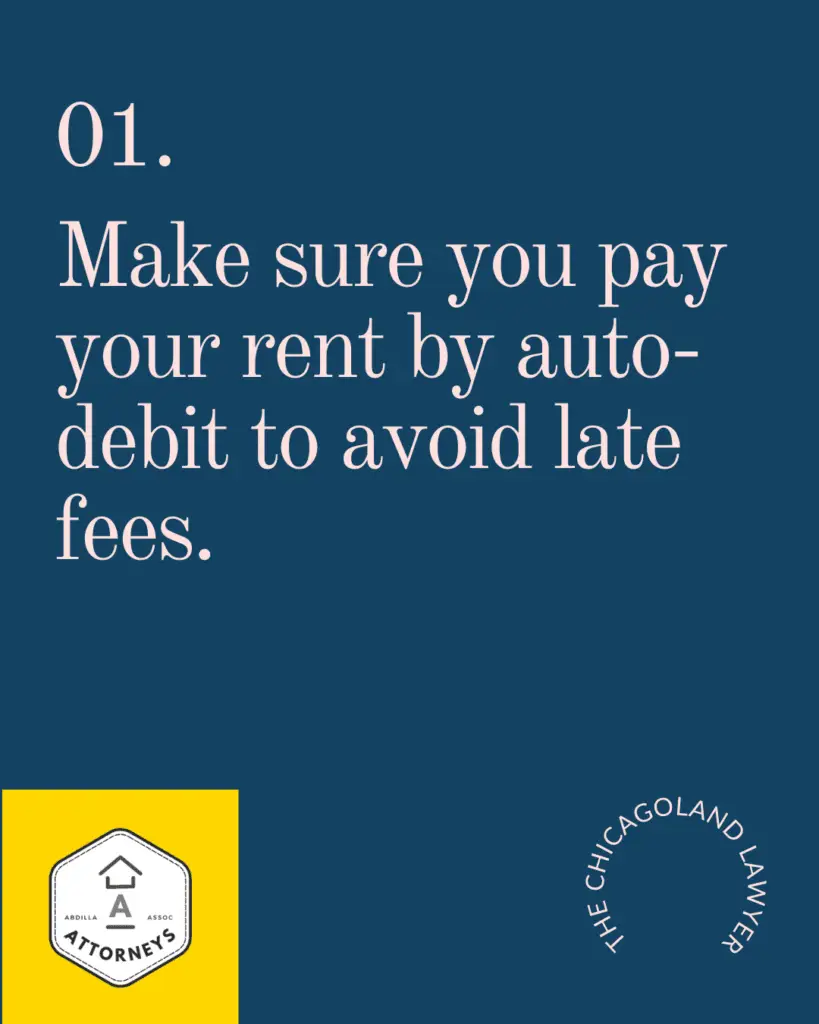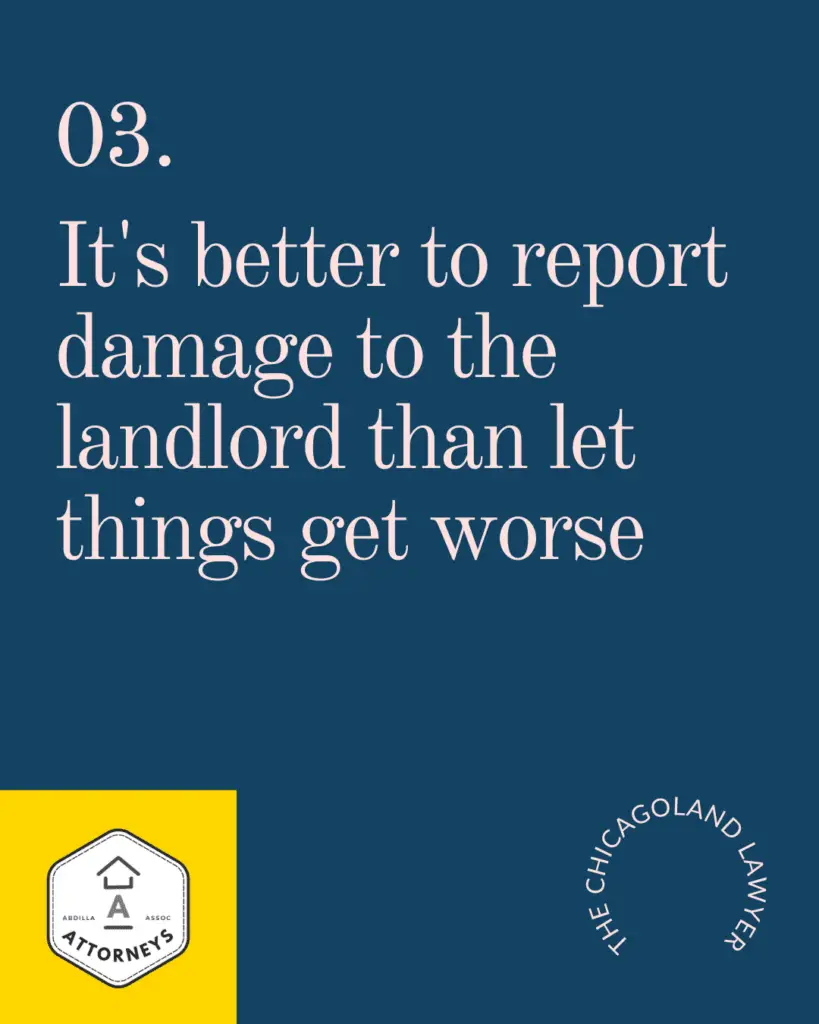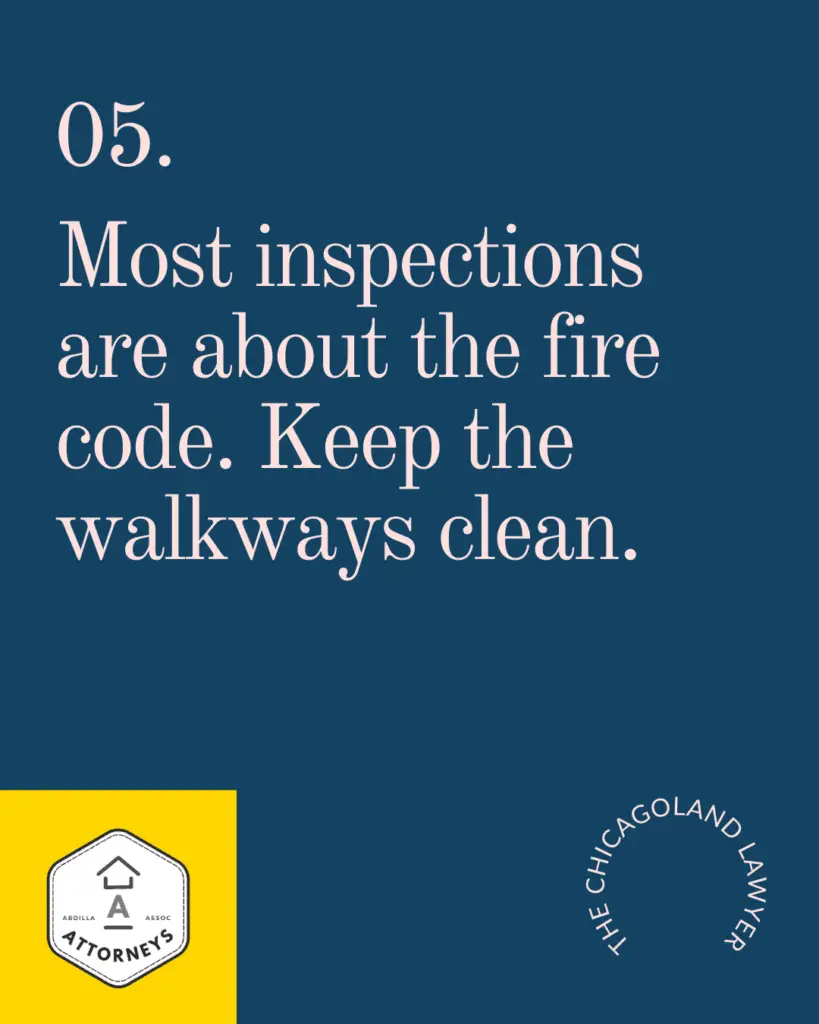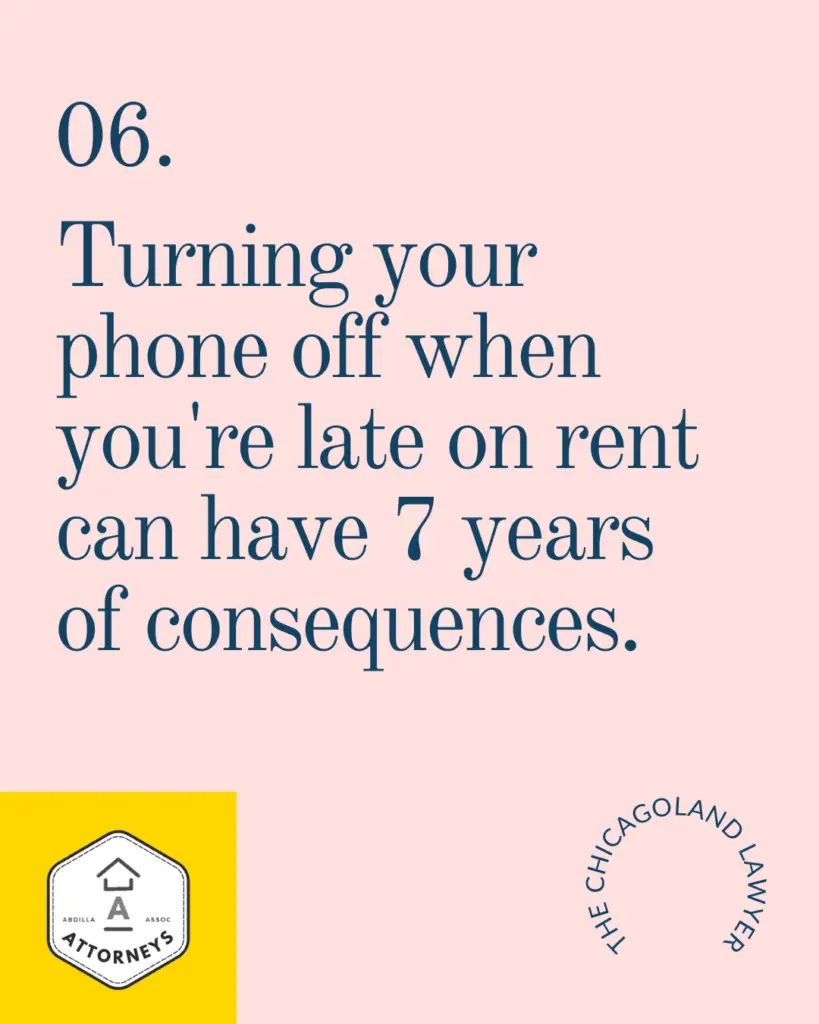Tenants sometimes find themselves in challenging situations with their landlords and need to spend more money than they’d like to on attorneys. By understanding the top 5 ways tenants get in trouble, you can take steps to avoid these pitfalls and maintain a positive rental relationship.
Table of Contents
1. Non-payment of Rent

One of the main reasons tenants face difficulties with landlords is failing to pay rent on time. Consistently late or missed payments can lead to a five-day notice, nonrenewal, or eviction.
Fix: Set reminders or automate rent payments to ensure timely payment. If you’re facing financial difficulties, communicate proactively with your landlord to discuss payment arrangements. Consider also looking for rental assistance.
Consequences: Eviction, negative impact on credit score, and difficulty finding future rentals.
Get em Out!
Chicago Eviction Lawyers Giving Free Consultations
2. Lease Violations

Tenants often run into problems when they violate the terms of their lease agreement. The following are the most common ways tenants get 10-day notices.
- Unauthorized occupants: Allowing people to live in the rental property who are not listed on the lease or exceeding the maximum occupancy limit can result in fines or eviction.
- Pets: Keeping pets without permission or violating pet policies, such as breed or weight restrictions, can lead to financial penalties, eviction, or being required to remove the pet from the premises.
- Subletting: Renting out part or all of the rental property without the landlord’s permission is a common lease violation. In Chicago, landlords must accept a reasonable sublet, but in the collar counties, this is not so. Subletting can result in eviction or other legal consequences.
- Property alterations: Making unauthorized changes to the rental property, such as painting, installing fixtures, or remodeling, can lead to financial penalties or eviction if not approved by the landlord.
- Noise disturbances: Excessive noise or repeated disturbances can be grounds for eviction, especially if it violates local noise ordinances or disrupts other tenants.
- Property damage: Causing significant damage to the rental property, either intentionally or through neglect, can lead to financial penalties or eviction.
- Failure to give proper notice: Not providing sufficient notice when moving out or breaking the lease early can result in financial penalties, including forfeiting your security deposit or being held responsible for rent until a new tenant is found.
Fix: Carefully review your lease agreement and adhere to its terms. If you wish to make changes, discuss them with your landlord and seek written consent.
Consequences: Eviction, possible fines, and damage to your rental history.
3. Property Damage

Causing excessive property damage, beyond normal wear and tear, can strain your relationship with your landlord and lead to eviction.
Fix: Treat the rental property with care and promptly report any damages. Maintain open communication with your landlord about necessary repairs.
Consequences: Eviction, loss of security deposit, and legal liability for repair costs.
4. Illegal Activities

Engaging in illegal activities on the rental property, such as drug use or dealing, can result in eviction and legal consequences.
Fix: Abide by the law and respect your landlord’s responsibility to maintain a safe and lawful environment for all tenants.
Consequences: Eviction, criminal charges, and difficulty finding future rentals.
Get em Out!
Chicago Eviction Lawyers Giving Free Consultations
5. Health and Safety Violations

Failing to follow local health and safety codes, such as hoarding, creating fire hazards, or causing unsanitary conditions, can lead to eviction.
Fix: Keep your rental property clean and safe, and promptly address any hazards. Familiarize yourself with local health and safety codes to ensure compliance.
Consequences: Eviction, possible fines, and damage to your rental history.
By being aware of these common issues and taking proactive steps to address them, you can maintain a positive rental relationship with your landlord and avoid the stress and challenges associated with eviction. Remember, communication is key – if you’re facing difficulties, discuss them with your landlord to find a solution together.
Consequences of an Eviction

An eviction can have several negative impacts on your credit and financial standing. Here are some of the credit consequences of eviction:
Judgments and Credit Score Problems
If your landlord wins an eviction lawsuit against you, a judgment may be entered on your credit report. Judgments are public records and can remain on your credit report for up to seven years, seriously impacting your credit score and making it difficult for you to secure future loans or housing. You will find it is nearly impossible to get a lease on a nice home with a recent eviction.
Collections Reporting
If you owe past-due rent or other fees to your landlord, they might send your debt to a collection agency. Collection accounts are reported to credit bureaus and can significantly lower your credit score. Collections can stay on your credit report for up to seven years.
Negative Credit Score Impacts
Although routine rent payments are not typically reported to credit bureaus, late or missed payments that led to the eviction may be reported by your landlord or a collection agency. Late payments can negatively impact your credit score and remain on your credit report for up to seven years.
Difficulty Renting in the Future
Many landlords conduct background and credit checks before approving rental applications. An eviction on your record, along with a lower credit score, can make it harder for you to rent a new place. Landlords may consider you a high-risk tenant and reject your application or require a higher security deposit.
To minimize the credit consequences of an eviction, it’s essential to communicate with your landlord and try to resolve any issues before they escalate to eviction proceedings. If you already have an eviction on your record, focus on rebuilding your credit by paying your bills on time, reducing your debt, and maintaining responsible financial habits.
